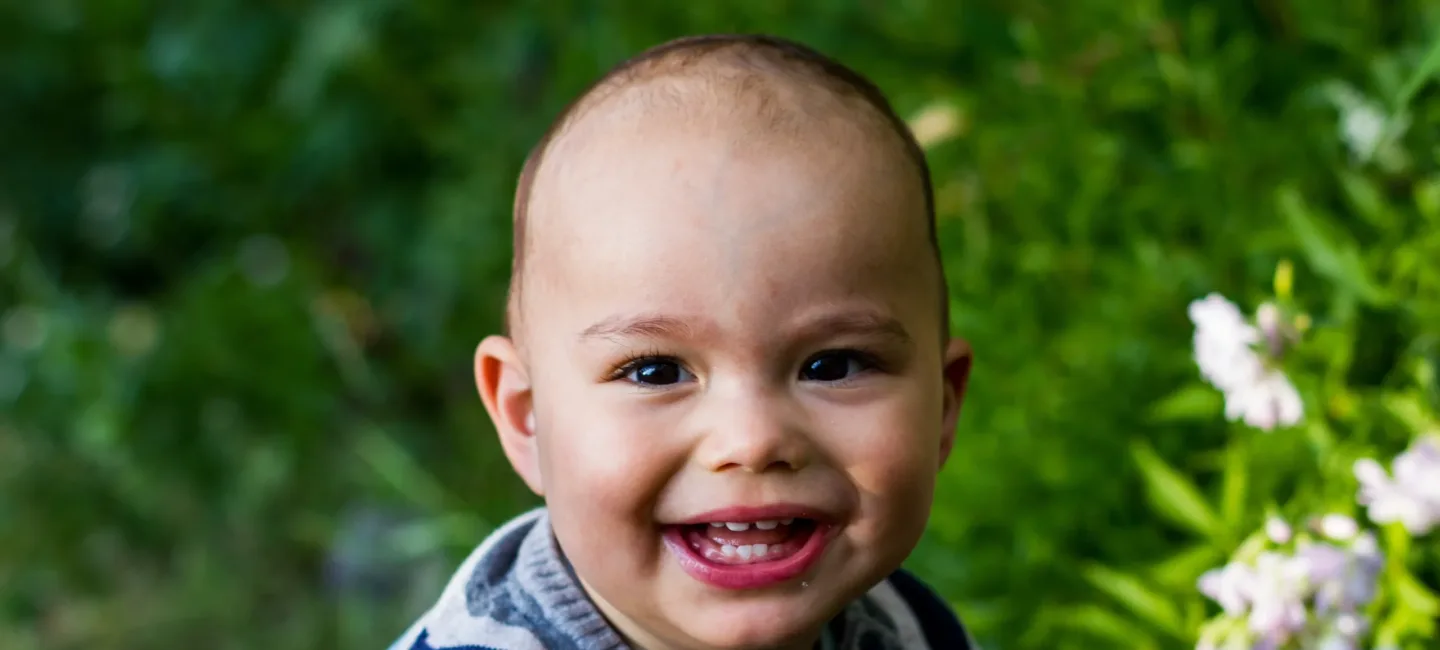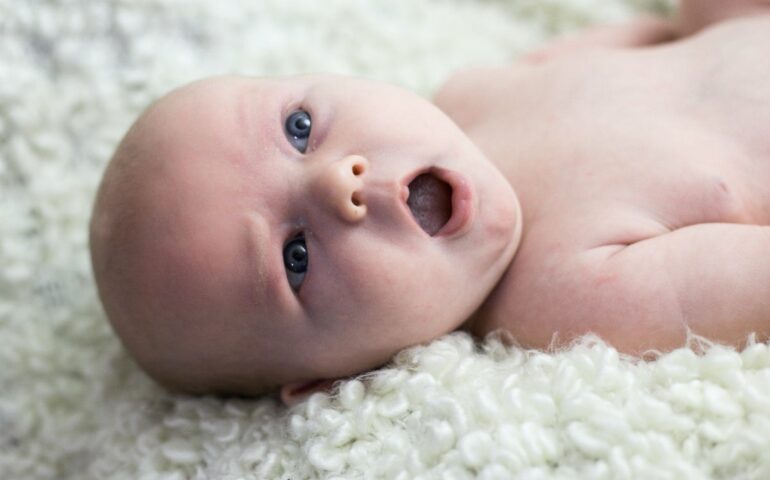
Your baby is 16 months old and continues to grow a little more every day. This is a good time to review what’s going on for them right now: motor development, cognitive development, diet, sleep, and health.
Baby at 16 months: here’s everything you need to know.
Cognitive development
At 16 months, your baby’s psychomotor development is in full swing.
Memory
At 16 months, your baby’s memory improves; they begin to sharpen their procedural memory (linked to automatisms—this is what allows, for example, riding a bike without relearning each time). Their episodic memory also tends to develop, enabling them to retain moments they have personally experienced. Thanks to episodic memory, your child may be able to locate events and places, think ahead into the future, and also recognize people or locations. These two types of memory are very important because they help consolidate the new abilities your child develops every day. Finally, working memory allows your baby to hold information and use it in another context.
At 16 months, your baby won’t be able to remember all the moments you’ve experienced together, even though their memory is actively developing. In fact, you have to wait between 3 and 5 years for episodic memory to be more fully developed. But they will still retain an emotional memory of these events!
Language
From 16 months on, your child begins to be able to link two simple words in a row, or even string words together by imitating your speech. They will start to remember more and more words! But this is also the time when your child learns “no” and begins to assert themselves.
Comprehension
There should be an improvement in their comprehension skills; that is, they begin to better grasp simple instructions like “go get your shoes” or “give me the ball.” They may not yet fully understand negation. At the same time, their sentences may be incomplete, made up of a single word (e.g., “blankie,” for “I want my blankie”).
Finally, at this age, your baby’s thinking keeps developing. They should start to become aware that they are a unique person with their own emotions!
Motor development
At 16 months, your child continues their quest to explore the world, partly through discovering their body. Your child may start becoming aware of their body, their hands, their body schema. Soon, they might be able to identify body parts. Their movements should also become more precise. Overall, their fine motor skills tend to improve and become more refined. Their eyes and hands coordinate to reach what they want. This may be the beginning of them starting to eat on their own. To support the development of fine motor skills, you can choose different types of games:
- pouring games (tubs or bowls filled with bottle caps, pasta, etc.)
- building games (stacking towers, etc.)
- shape-sorting games (nesting cubes or shape boxes).

Playing at 16 months
At 16 months, play contributes to the development of different abilities. Playing often helps stimulate:
- language,
- socialization and empathy,
- creativity,
- fine and gross motor skills,
- the ability to learn and solve problems.
Through games, they can also begin to develop a better understanding of the world around them. Pretend play can be very interesting. It allows them to get comfortable with everyday situations. This helps with the assimilation of symbolic representations. Now, they may start to distinguish reality from imagination. To support this, you can introduce various games:
- dress-up,
- play kitchen,
- dolls,
- workbench,
- nursery play with a baby doll,
- figurines that depict everyday scenes or animals.
These “pretend play” activities are also beneficial because they help improve communication, internalization of social norms, and can be an expression of outside experiences.
Finally, playing with you is important too. It can strengthen your bond and encourage quality time. Especially at this age, your child wants to be watched by you when they play—they want to show you what they’re doing. They may not yet be fully able to play with others, even if they’re interested in them. They might still be reluctant to share their toys. But as they keep developing and start moving toward others, they should continue gaining independence and relational skills.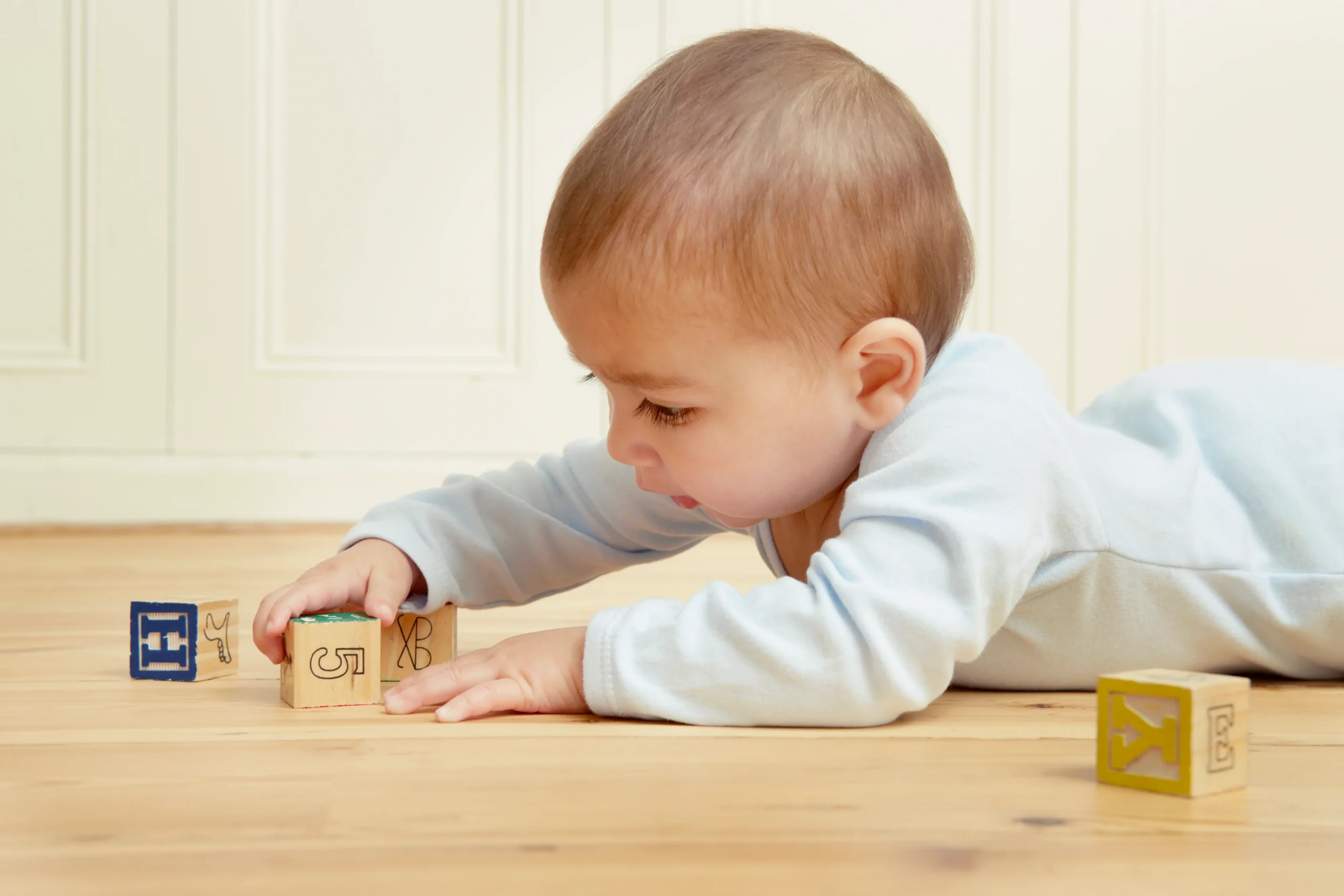
New teeth at 16 months
At 16 months, your child likely already has a few baby teeth such as their incisors (bottom first, then top and lateral), as well as their first molars. Now, there’s a good chance their canines are beginning to come in. As with other baby teeth, this may cause inflammation of the gums, accompanied by various symptoms:
- excessive drooling,
- red cheeks,
- a sore bottom (diaper rash),
- swollen gums,
- changes in appetite and bowel movements (stools),
- disrupted sleep,
- a mild fever,
- your baby may be in a bad mood,
- they may try to chew and gnaw on objects,
- A small hematoma may form—like a small painful blue bubble—on the gum, or an eruption cyst, signaling an imminent breakthrough.
These symptoms can seem alarming for parents, but they are only temporary and fade as soon as the tooth erupts.
To soothe your baby, you can massage their gums with your finger, or give them a teething ring, making sure it’s large enough that they can’t fit it entirely in their mouth.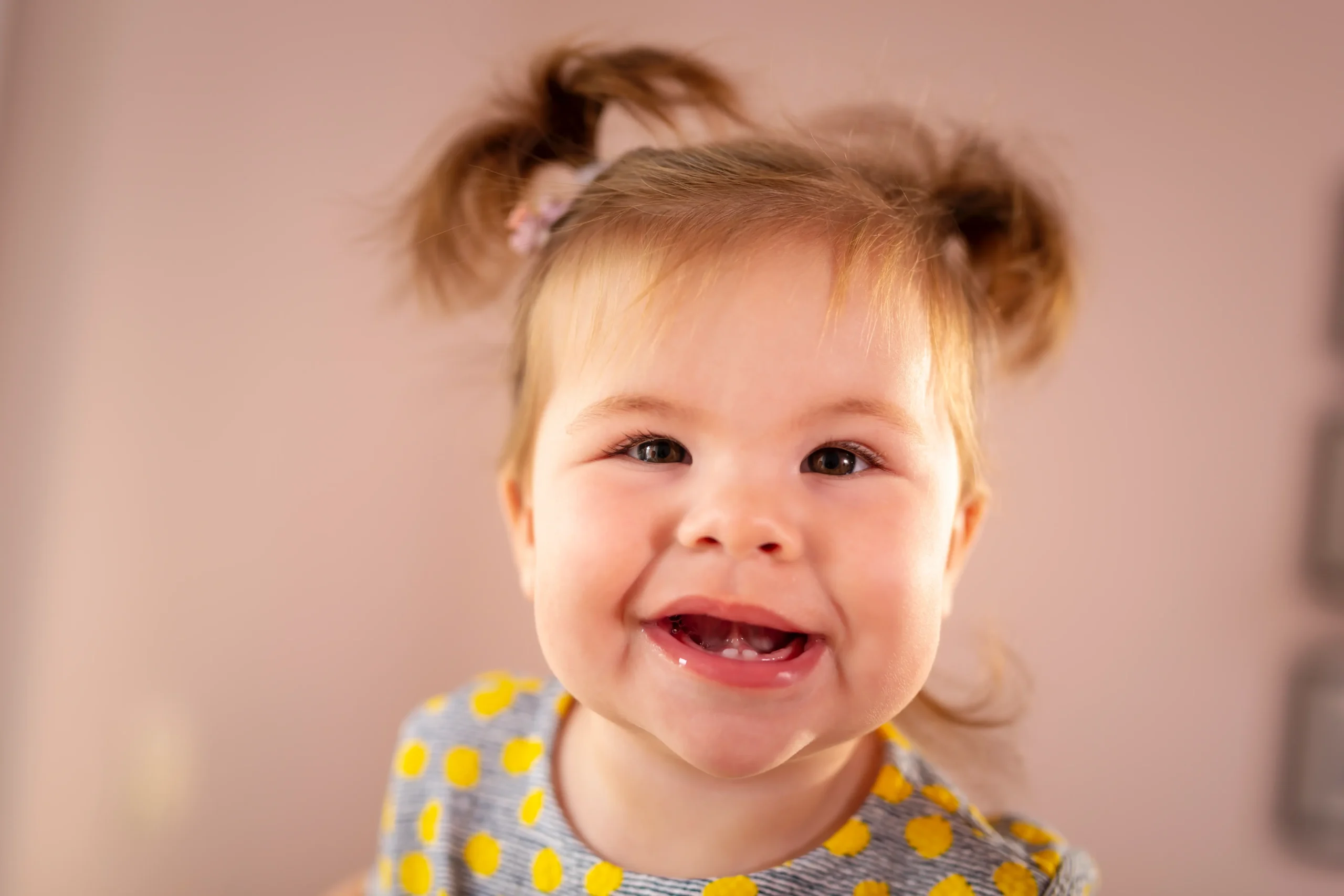
This month’s vaccines
Appointments with the pediatrician help monitor your child’s growth and development, detect any potential medical issues early, and keep their vaccination schedule up to date.
Vaccination plays a key role in boosting your baby’s immune system, protecting them against potentially serious childhood illnesses. At 16 months, it’s a good time to update their vaccination schedule by giving the mandatory MMR booster (measles, mumps, rubella).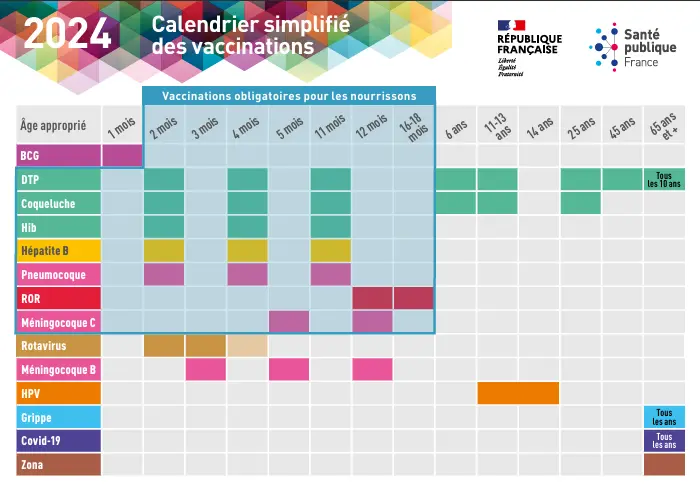
When to worry
The developmental milestones mentioned above are only general guidelines regarding a baby’s progress. Every child develops at their own pace! So don’t worry if your baby progresses a bit faster or slower than another.
However, if you notice a sudden halt in your child’s development, don’t hesitate to consult your healthcare professional.
Want to learn more? Feel free to download the May app, where you’ll find plenty of resources to support and guide you throughout your journey as a new parent.
Your child is therefore in full development, ready for new adventures full of emotions and activities!
**
Photo credits: Impactphotography | imagesourcecurated | krisfotostav22 | Yannamelissa
This text was translated from French by an artificial intelligence. The information, advice, and sources it contains comply with French standards and may therefore not apply to your situation. Make sure to complement this reading by visiting the May US/UK app and consulting the healthcare professionals who are supporting you.
